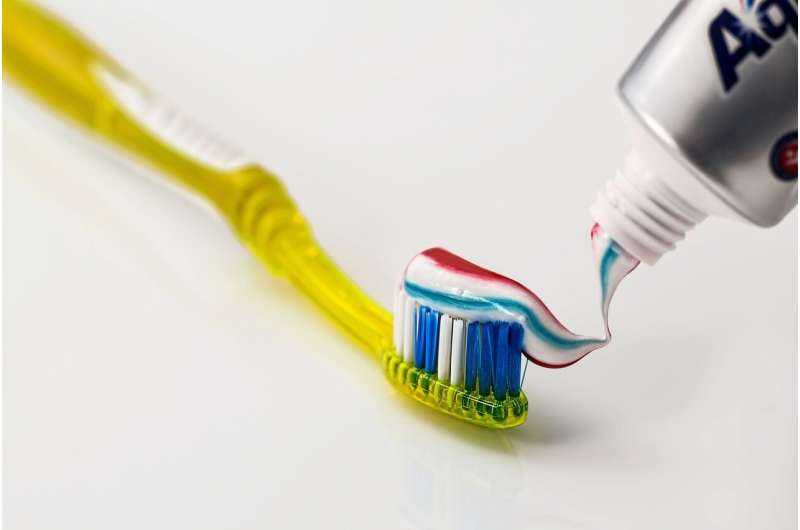
To become healthy and successful adults, children need to persist on tasks that they might not necessarily consider easy or fun, like studying, exercising, or brushing one’s teeth. Throughout childhood, persistence behavior changes daily, but the factors that shape this variability in persistence are understudied. A new study published in Child Development by researchers at the University of Pennsylvania, Yale University and the Sante Fe Institute, analyzed daily toothbrushing behaviors in three-year-olds and examined the relationship between their persistence on the task and parental praise.
“Our work is the first to show that fluctuations in parent praise relate to fluctuations in child persistence,” said Allyson Mackey, assistant professor of psychology at the University of Pennsylvania. “We examined how variations in parent talk and stress, and child mood and sleep, separately impacted fluctuations in brushing time. Surprisingly, parents were not able to accurately predict which variables shaped brushing in their own children.”
The study included eight-one three-year-olds learning to brush their own teeth. The sample was 80% White, 14% Multiracial, 10% Hispanic or Latinx, 2% Asian, 1% Black and 1% preferred not to answer. Data was collected from families in Pennsylvania (94%) with the remaining in New Jersey, Delaware, Massachusetts, Maryland, and Florida. Parental education averaged from 12 to 20 years and the annual income ranged from $14,000 to $200,000. Data were collected throughout a 16-day period in two waves: January-June 2019 and March-May 2020 (during the COVID-19 pandemic). Families were recruited through partnerships with local preschools and through social media.
Parents submitted videos of nightly toothbrushing over 16 days, capturing both children’s persistence and parent talk. Parents were instructed to start recording the video before the toothbrush was in their child’s mouth and to stop recording when they took the toothbrush back from their child. Parents were asked to let their child brush their teeth by themselves for as long as they could before the parent stepped in to help. (If children did not brush their teeth for a night, resulting in no video, parents were instructed to let the researchers know). The videos also included parents talking to their child throughout the toothbrushing and “praise” used by parents throughout the nightly ritual. Praise was broken into categories including “process praise” (e.g., “good job”), “person praise” (e.g., “good girl”), and “other praise” (e.g., “very good” or “nice”). Other utterances from parents included “distraction” (e.g., singing, reading a book, invoking pretend play), and using expressions such as “brush the backs” and “keep brushing” as instruction.
Parents also completed daily surveys about the following:
- Parental nightly stress level: ranging from a scale of 0 (not stressed at all) to 10 (extremely stressed)
- Child’s mood: ranging from a scale of 0 (extremely bad) to 10 (extremely good)
- Sleep duration: daytime nap (if any) and length, nightly bedtime and morning wake up, periods of awake time during the night
The findings showed that children’s persistence fluctuates from day to day and is related to parent talk. Children brushed longer on days when their parents used more praise and less instruction. Parent praise during toothbrushing mostly consisted of generic praise and process (e.g., “nice” and “great job”), with few instances of person praise (e.g., “good girl”). Children varied in their sensitivity to mood, sleep, and parent stress.
“Our work provides a path towards identifying the specific factors that impact individual children’s persistence to design targeted interventions, some of which parents may not find obvious,” said Julia Leonard, assistant professor of psychology at Yale University. “Our work also demonstrates a new approach to studying children’s healthy development—instead of focusing on what factors make one group of children different from another, our study asked which factors make individual children more like the best version of themselves.”
Source: Read Full Article
